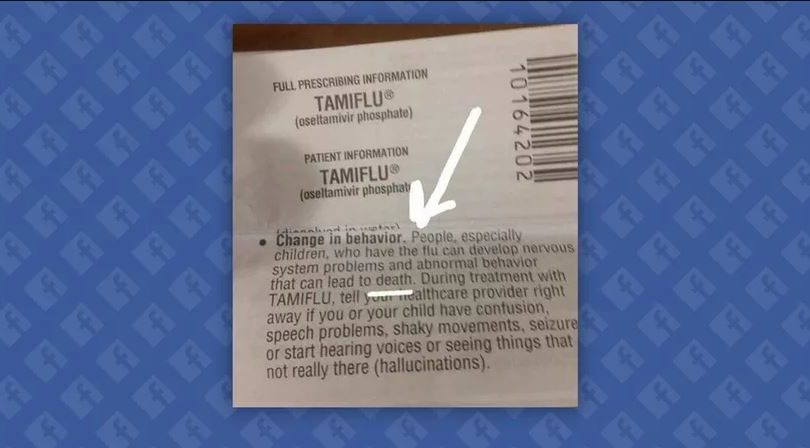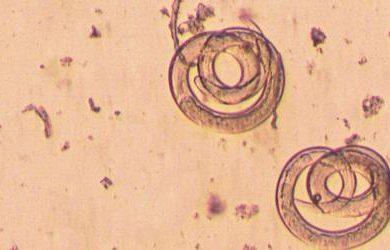A Cochrane review of the literature has shown that Tamiflu does not provide any benefit meaning it does not reduce or prevent the symptoms of the flu.
“Neuraminidase inhibitors for preventing and treating influenza in adults and children.”
You can find the article at this link:
https://www.cochranelibrary.com/cdsr/doi/10.1002/14651858.CD008965.pub4/full
The authors conclude:
“Treatment trials with oseltamivir or zanamivir do not settle the question of whether the complications of influenza (such as pneumonia) are reduced”
They add:
“The use of oseltamivir increases the risk of adverse effects, such as nausea, vomiting, psychiatric effects, and renal events in adults and vomiting in children.”
A more recent review was published:
“The Tamiflu fiasco and lessons learned” at this link
https://www.ncbi.nlm.nih.gov/pmc/articles/PMC4375804/
The authors wrote:
“Oseltamivir (Tamiflu), a neuraminidase inhibitor, was approved for seasonal flu by the US Food and Drug Administration in 1999. A number of randomized controlled trials, systematic reviews, and meta-analysis emphasized a favorable efficacy and safety profile. The majority of them were funded by Roche, which also first marketed and promoted this drug. In 2005 and 2009, the looming fear of pandemic flu led to recommendation by prominent regulatory bodies such as World Health Organization (WHO), Centers for Disease Control and Prevention, European Medicines Agency and others for its use in treatment and prophylaxis of influenza, and it’s stockpiling as a measure to tide over the crisis. Serious Adverse Events, especially neuropsychiatric events associated with Tamiflu, started getting reported leading to a cascade of questions on the clinical utility of this drug. A recent Cochrane review and related articles have questioned the risk-benefit ratio of the drug, besides raising doubts about the regulatory decision of approving it.”
It is interesting to see that Roche designed and performed studies to support that their own product is safe and effective against the flu.
Is that not what we call a conflict of interest? How can we trust those studies?
We just can’t!
On the other side, an increasing amount of evidence demonstrates that Tamiflu can cause serious side effects.
Indeed, a 2007 scientific report suggests that Tamiflu is, in fact, exceedingly dangerous.
In the six years that Tamiflu was marketed in Japan, the Japanese Ministry of Health Labor and Welfare received 1377 reports of adverse reactions.
Approximately half of these reactions were serious neuropsychiatric cases, including delirium, convulsions, and encephalitis. Eighty deaths were reported, and 71 were considered to be directly related to Tamiflu. Two of the most alarming deaths were suicides by 14-year-old teens on Tamiflu.
A 2011 Japanese study found that those diagnosed with influenza had an almost six-fold increased risk of deteriorating and dying within twelve hours of receiving Tamiflu.
They conclude:
“These data suggest Tamiflu use could induce sudden deterioration leading to death, especially within 12 hours of prescription. These findings are consistent with sudden deaths observed in a series of animal toxicity studies, several reported case series and the results of prospective cohort studies. From “the precautionary principle,” the potential harm of Tamiflu should be taken into account and further detailed studies should be conducted.”
As such, Japanese authorities have advised against Tamiflu for adolescents, and the National Institute for Health and Clinical Excellence (the UK’s version of the FDA) recommends against Tamiflu as a preventative strategy in healthy people. Yet, American agencies like the CDC and FDA continue to push Tamiflu in spite of its documented side effects of hallucinations.
Several recent news stories have highlighted these side effects of Tamiflu. For example, on January 15, 2018, a 6-year-old Texan girl took Tamiflu, hallucinated, and tried to jump out of a window. About a week later, another Texan child, this time a two-year-old boy, suffered from hallucinations that caused him to repeatedly slap his mother.
In a news article from January 24, 2018, the mother of a five-year-old girl who experienced severe hallucinations and seizure-like symptoms stated, “The flu is bad, it’s horrible, you feel helpless your child’s sick…I would take that a hundred times over the reaction she had to the Tamiflu.” Perhaps most telling is an article in Time entitled ‘Tamiflu Made My Kid Hallucinate. I Think the Flu is Preferable to Delirium.’
In conclusion, Tamiflu is dangerous, has major side effects, and is not recommended. Good alternatives for flu prevention is to maintain a good vitamin D level and avoidance of sugar.
Dr. Serge






